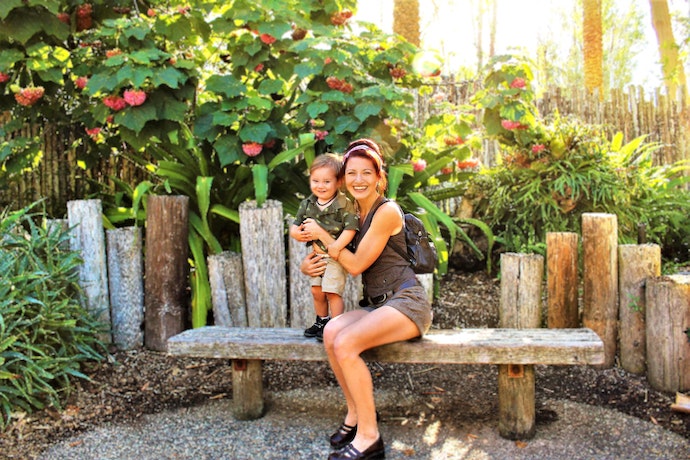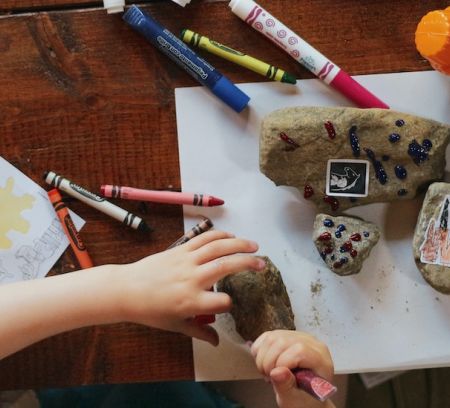Parenting For Beginners: How to Raise Children In Simple Steps
Oct 15,2022read
Are you a new parent looking for tips on how to raise a kid? Are you a soon-to-be parent who is curious about parenting for beginners? Either way, this article will provide you with some helpful guidance. Parenting can be challenging, but it’s also one of the most rewarding experiences in life. It’s not easy to juggle work and family life, but there are many effective strategies that can make parenting easier. In this guide we share advice from experienced parents on how to raise a kid.
Image Source: FreeImages
If you are reading this as an expecting parent, take note of these pointers so that you can raise your child wisely from day one. Even if you’re not expecting yet, these tips will come in handy once the time comes. Scroll down and read on to discover 25 useful parenting tips that will help you raise a kid (and probably save you from making some common mistakes).
1. Establish a routine
A lot of parents think that having a routine for your child is an absolute must; and it really is. Routine is something that your child needs as a way to sense that he/she is being taken care of. Once your child has learned how daily events and tasks go, he/she will feel more secure, happy, and content. With a routine, you will be able to have better control over your child’s daily activities and schedule. Having a routine will also let you know what is supposed to happen when and where; this is important if you have more than one child.
Photo by Humphrey Muleba on Unsplash
2. Use development milestones as a guide
Always keep in mind that every child develops at his/her own pace. This is where development milestones come in handy. It is because they are a good way to know what to expect from your child. If you are noticing that your child is not hitting any development milestones by a certain age, you should consult a doctor. This will help you determine if your child has a developmental delay or disability. If your child is not reaching milestones, it does not mean that he/she is not intelligent; it just means that he/she is growing at a different pace.
3. Don’t compare your child to other kids
Comparing your child to other kids can be unnecessary and harmful. You should understand that every child is unique and special in their own way. There is no such thing as a perfect child. What’s more, there is no one-size-fits-all parenting method that works for all families. Every child is different, so you need to find the right parenting approach that works for your family.

Photo by Jordan Whitt on Unsplash
4. Try not to react too quickly
New parents often feel anxious, worried, and stressed. They have a lot on their plate, and they are trying to take care of their newborn child. It can be very tempting to respond negatively to your child’s cries or other behaviour. You may feel like you need to immediately do something about the situation. However, you should try not to react too quickly. Your child may be in a phase where he/she is testing the boundaries of his/her world. Therefore, you should calmly and patiently let your child know what is expected of him/her.
5. Find activities that your child is interested in
As a parent, you need to know what your child likes to do. You need to find out what activities your child enjoys. This will help you figure out what your child likes to do; you can use this information to find things that he/she would like to do. If you find activities that your child enjoys, you will be able to spend quality time with him/her. Spending time with your child will help you build a relationship with them.

Photo by Kelli McClintock on Unsplash
6. Be an active listener and observer
As a parent, you need to be an active listener and observer. You need to listen to what your child is saying. This way, you will know how your child is feeling and thinking. You should also observe your child’s behaviour. This will help you know what your child likes to do. You can use this information to respond to your child’s needs and wants in a better way.
Photo by Kelly Sikkema on Unsplash
7. Don’t be afraid to ask for help
Becoming a parent is an amazing experience. However, it can be challenging, too. Sometimes, parents may find themselves in situations where they don’t know what to do. If you are feeling overwhelmed, it is okay if you ask for help. You should not feel ashamed or embarrassed because everyone has different experiences and resources. There are many community resources that can help you raise a kid.
9. Set rules and boundaries for your child
Kids need to understand that there are rules and boundaries in every household. They need to know what is expected of them, so they can have a sense of security. Therefore, you need to set rules and boundaries for your child. You can also let your child know what is expected of them. You can do this by writing it down on a rule or behaviour chart. This will allow your child to see what he/she needs to do to get a token; this will let them know what is expected of them.
10. Discipline with love and consistency
It is important to remember that discipline is not about punishing your child or making them feel bad about what they did. It is about guiding them and letting them know what is expected of them. Discipline is about giving your child the guidance and support that they need. You should discipline your child with love and consistency. This will let your child know why they are being disciplined.

Photo by Steven Van Loy on Unsplash
11. Be a good role model for your child
Role models are important, especially for kids growing up. You can be a good role model for your child if you are confident and happy in your own skin. You should also be open to learning new things. What’s more, you should let your child know that they can also achieve whatever they set their minds to. If your child sees that you are confident and comfortable in your own skin, they will be more likely to adopt your confidence.
12. Play with your kid – it’s important!
You should remember to play with your child. Playing with your child will let them know that you are interested in them and their lives. You should play with your child often; this will help you build a close relationship with them. You can also use play to talk about things that are important to your child. This will help you communicate with your child in an effective way.

Photo by Elisabeth Wales on Unsplash
13. Don’t shy away from difficult conversations
As your child grows, you need to have difficult conversations with them. You need to talk to them about important subjects, like sex, drugs, and bullying. You should have these conversations with your child when they are young, so they can have time to process the information. It is important to have these types of discussions with your child. They will help them learn important life skills and values. If you follow these parenting tips and advice, you are sure to raise a kid that is happy and confident.
Parenting can be challenging, but it’s also incredibly rewarding and worth it. So, if you are a new parent or expecting one soon, keep these tips in mind.
















Leave a comment